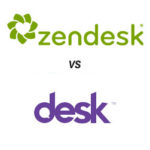 It is considered a fact when you do business: if your business involves dealing with customers, then you are going to provide customer service. When there are problems or questions that need to be answered or resolved, your clients will look to you for their solutions. Your capacity to quickly manage as well as resolve customer service issues will establish the short- and long-term costs of the issue, and ultimately, the overall reputation, growth, and success of your business.
It is considered a fact when you do business: if your business involves dealing with customers, then you are going to provide customer service. When there are problems or questions that need to be answered or resolved, your clients will look to you for their solutions. Your capacity to quickly manage as well as resolve customer service issues will establish the short- and long-term costs of the issue, and ultimately, the overall reputation, growth, and success of your business.
Handling customers well is good business. For smaller businesses, the resources needed to deal with customer service, while at the same time also expanding the business, can be quite burdensome.
Lucky for businesses these days, customer service has definitely come a long way, compared with the call centers of old. Customer service solutions can eliminate much of that business burden by automating and streamlining the service process. Not only is this better for the company, but also better for the customers.
Today’s customer service software solutions provide agents with tools they need to quickly solve and handle issues in just a few minutes. With multi-channel support of such tools, customers these days can set terms of the interaction: whether it is via texting, over the phone, in a live chat session, or through social media.
In addition, customer service platforms provide various self-service options, enabling customers to search for the relevant information and answers they need to handle and ultimately resolve issues on their own. For the company, this is a win-win strategy: customers stay happy and satisfied, with a minimal cut on a company’s resources.

Zendesk in action
In the world of customer helpdesk solutions, Desk.com and Zendesk are among the biggest players. They are considered one of top choices in the customer service software market, so it is no wonder that a lot of companies all over the world are either using Desk.com or Zendesk for their customer service needs.
While both solutions run on cloud servers and offer essential customer service management functionalities, there are key differences and nuances that separate the two.
Desk.com is a web-based customer support tool that offers various features most rapidly-growing businesses need to provide outstanding customer service. The tool allows businesses to combine all of their relevant customer service support information across websites, social services and email. Businesses using the tool can offer full support with their customer service staff having access to cases. More information about the software is available in our detailed review of Desk.com.
With Desk.com, companies can also share their knowledge and other important information on a self-service, customizable website where their customers can quickly find answers to their own problems or questions.
Zendesk provides an efficient and beautifully simple customer service platform that is designed to bring companies and their clients closer together. With this tool, companies can provide outstanding customer service, take on a more pro-active customer engagement, and scale with self-service options. The result? More personal, meaningful, and productive customer relationships—all at a cheaper cost. You can learn more about it in our detailed review of Zendesk.
In the comparison Desk.com vs Zendesk, which tool is the right one for you? Here is a detailed review of both tools, including their advantages and disadvantages, analysis of which works better for various kinds of businesses, their price, key features, and other important factors that can affect your buying decision.

Overview of Desk.com interface
Advantages and Disadvantages
Let us start by looking at the key features of both Desk.com and Zendesk:
Desk.com
- User-friendly dashboard
- Collaborative tool that can support Facebook, Gmail, and Twitter cases
- Sophisticated business rules that efficiently route cases
- Flexible pricing to support your company
- Complaint Tracking System
- Airtight case management system
- Social Media integration
- Self-service support center
Zendesk
- Flexible ticket management plus automated workflow
- Mobile support with native Android, iPhone, and iPad, apps
- Multi-channel support: web, phone, email, chat, and social media
- Robust reporting as well as advanced analytics
- Knowledge base portal
- Community forums
- Open API that enables seamless integration into your operations
- Unlimited and free “light agents” (for Enterprise plan only)
- Screencasting
- Full CSS rebranding
- Export ticket views to CSV
- REST API
- At least 100 out-of-the-box integrations plus 3rd party apps
- Multi-brand support with linked accounts
- Group rules and macros
- Public and private forums
- Multi locale (timezone and languages)
- SSO with Facebook, Google, Twitter, and SAML
- Pre-built: Salesforce, SugarCRM
Desk.com
Cost is definitely a concern with Desk.com. Desk.com asks for $30 per month for each agent (billed annually). If you want to pay on a month-to-month basis, it’s $35 for each agent. On the other hand, Zendesk’s pricing is drastically lower: $1 per agent per month (billed annually) or $2 on a month-to-month basis. Businesses that do not have large budgets for their customer helpdesk software solutions, especially small businesses or startup companies may find Desk.com too pricey for their operations.
If you want more integration options, you have to pay more with Desk.com. It will also ask for more if you prefer customizing email notifications. Compared with Zendesk, Desk.com does not offer any mobile-supported apps for Android and Blackberry.
Unlike Zendesk, Desk.com has little or no voting/feedback support. It also does not provide native widget tabs on your website’s pages while this feature is available with Zendesk.
To be fair however, Desk.com provides a good and user-friendly interface for ticket management. The tool’s design and interface is well-planned out, properly executed, and elegantly designed. Desk.com also offers a robust knowledgebase as well as canned response capabilities. For instance, you can create canned responses for Twitter, Facebook, and email on the same topic. You can also insert your company’s knowledgebase articles right into an email to your customer instead of merely linking to an article.
Zendesk
Compared with Desk.com, Zendesk offers a higher number of integrations. If your business is working with a lot of other companies or using a number of software solutions, then Zendesk is a better choice than Desk.com
Zendesk also offers user-friendly community forums that include feedback/upvoting. It also has a mobile optimized support business that your customers would find easy to use. With Zendesk, you can have widget tabs on top of any of your website pages. Zendesk will also allow your customers to provide feedback and rate your customer support replies.
However, compared with Desk, it is more difficult to learn. Your company may have to spend some time training your customer helpdesk staff in understanding and working with the tool. Compared with Desk.com, Zendesk’s interface and ticketing workflow may seem unnatural.
Zendesk also does not interrupt users submitting tickets to recommend answers to inquiries that may already be existing in your knowledgebase or forum.
You also have to pay extra if you want to have a built-in live chat on your website. Likewise, you have to pay for other add-on features:
- Customer satisfaction ratings
- Personal macros
- Agent collision detection
- Group rules and macros
- Business rules usage filtering
- Business hours
- Screencasting
- Business rules analysis
- Dynamic content
- Attachment limits
Head to Head Matchup
| Price | $30/month/agent, billed annually or $35 month-to-month | $1 per agent/month billed annually or $2 month-to-month |
| Customer types | Small business, large enterprises, medium business, freelancers | Small business, large enterprises, medium business, freelancers |
| Support | Phone | Phone, ticket, live support, training |
| Knowledge Base | Yes | Yes |
| Support Tickets | Yes | Yes |
| Chat Built In | No | Via Zopim |
| Integrated phone support | Yes | Yes |
| Integrated Forums | No | Yes |
| Analytics & Reporting | Yes | Yes |
| Merge Tickets | Yes | Yes |
| Add Notes | Yes | Yes |
| Collision Detection | Yes | Yes |
| API | Yes | Yes |
| Alerts / Escalation | Yes | Yes |
| Full Text Search | Yes | Yes |
| Incident Management | Yes | Yes |
| Problem Management | Yes | Yes |
| Routing | Yes | Yes |
| SLA Management | Yes | Yes |
Desk.com’s all-in-one helpdesk support platform is fast and easy to set up and run. You and your agents can immediately see your cases all in one place and engage with clients across various channels (phone, email, Twitter, Facebook, chat, and discussion boards) in one desktop platform, and see the insights your business needs in order to grow.
With its features Zendesk among the leading cloud-based solutions used by over 40,000 businesses worldwide. Companies prefer Zendesk to reduce costs, improve productivity, and boost customer satisfaction. Zendesk also seamlessly integrates support channels including chat, email, web, and social media.
Conclusion
Our comparison of Desk.com vs Zendesk shows that both customer helpdesk solutions are great in so many ways and both are certainly useful platforms for any business that wants to interact with their customers in the most productive and engaging way possible.
Choosing the best customer helpdesk platform thus will have to ultimately depend on the size of your business and the budget you can spend for such a tool.
If you are a running small or medium business or leading a nonprofit organization, Zendesk is a better option for you, especially if you do not have a huge budget for your helpdesk management needs. Zendesk is drastically cheaper compared with Desk.com. If your customer inquiries are not that frequent and your customer service team involves just one or a few employees, why get a more expensive tool?
For bigger companies and enterprises, or those that have larger budgets for customer helpdesk solutions, Desk.com might be the right tool to use.


























Leave a comment!